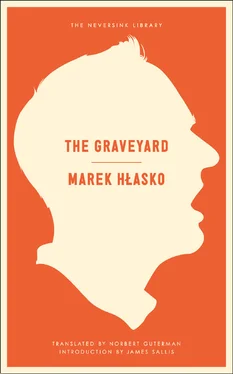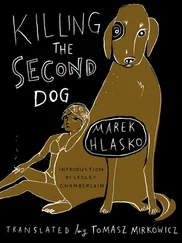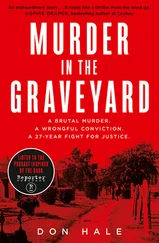Franciszek again dialed his number. When he heard the familiar voice of the switchboard operator, he breathed with relief.
“This is Kowalski. Connect me with the party office, please.”
Once again he heard the busy signal — this time it was a series of short rings.
“It’s busy.”
“I’ll wait.”
He pulled a chair over to him with his foot, and sat down. The proprietor put down his newspaper. “Yes, sir, I had to kiss my father’s hands,” he said. “The old man would say to me, ‘Janek’—my name is Jan—’you must obey your father, so your children will obey you later …’ ”
“Here’s your party,” the operator snapped. An instant later he heard a familiar voice: “Secretariat.”
“This is Kowalski,” Franciszek cried joyfully. “Is it you, Pawlak?”
“Yes. What’s on your mind?”
“Listen, I’ve had a little trouble. I was detained.”
“At the briefing?”
“No. In a police station.”
“In connection with our city-to-village campaign?”
“No, just detained.”
“Oh, I see — the deratization campaign.”
“No, no — a supposed case of intoxication.”
“But our delegate for the anti-drunkenness campaign is Cebulak. You are the city-to-village delegate.”
“Listen to me; it had nothing to do with any campaign …” He leered at the proprietor, who kept staring at him with red-ringed eyes. “I–I—” he stammered. “It was personal …”
The voice in the receiver rose a tone higher. “You can act on your own, Comrade Kowalski, after the campaign. You’re the city-to-village campaign delegate, and that’s that. This must not happen again.”
“All right,” said Franciszek. “I’ll come right over and explain. Goodbye.”
“Goodbye.”
Franciszek was hot; he felt himself suddenly drenched with sweat from his shirt down to his socks. He counted out the coins for the call. “A bottle of orangeade,” he said.
The proprietor smiled with good-natured irony, as though to say, “Brother, who do you think you’re kidding?”
“I haven’t got any,” he said. “There may be some kvass—”
“All right, make it kvass.”
“I was saying there may be some kvass this afternoon. I have a bit of milk for my own personal use; I can let you have some.”
“That’s even better.”
The proprietor tittered.
“What are you laughing about?”
“Here’s your milk. I always try to understand everybody.” And while Franciszek drank, the proprietor went on: “Don’t take what happened to you too hard. They locked you up, and they let you go. I was locked up in 1945. I was in with a Russian major, a deserter, who had escaped dressed like a chimney sweep. ‘Don’t you ever get upset by anything, Vania,’ he said to me — for my name is Jan—‘don’t be upset. Whatever they ask you, say you don’t know. As for me, Vania’—my name is Jan—‘this is the twenty-third time I’ve been locked up …’ ”
Franciszek put down his glass. “What do I owe you?”
“Wait a minute, I’ll finish my story. ‘You see, Vania,’ he said, ‘that’s how many times I’ve been in jail.’ ”
“I’m in a hurry,” Franciszek said. He glanced at the proprietor’s unshaven face, and realized only then that this was how he too must look. “What do I owe you?” he shouted.
“Three-forty.”
He paid and walked out.
“Hey, mister.”
He turned around. The proprietor was waving to him with a mysterious expression. His stare was so compelling that Franciszek walked up to him, spellbound.
“I’ll have coffee this afternoon …”
Once again he ran in his unbuttoned overcoat through the wet, muddy streets. He stopped suddenly. “And me?” he thought. “My name is Franciszek—” He heard the furious screech of brakes behind him, and jumped aside.
“What are you waiting for?” the driver screamed, “For applause?”
“For socialism,” someone said on the sidewalk. The crowd roared with delight; Franciszek turned a bright red, and was about to answer something when he heard a familiar voice: “So you don’t like it here? Come on, speak up: what is it you don’t like?” He turned around: it was the same young sergeant who had picked him up the night before, and he was already reaching out for identification papers. Franciszek hunched his head between his shoulders and ran on in the direction of the tram stop, where a crowd of people were already lined up ahead of him in the rain.
HE TURNED IN AT HIS FACTORY, AND ENTERED THE porter’s lodge. He thrust his card into the time clock, and it registered his tardiness. The mustachioed old porter walked up to him and, showing his yellowed teeth in a friendly smile, said, “The tramcar?”
“What tramcar?”
“You couldn’t get on the tramcar?”
“Why do you ask?”
“You’re late, Comrade Kowalski.” He sighed, and spread his hands. “I’ll have to keep your card,” he added sadly.
Franciszek handed him his card. “Too bad.”
He wanted to go, but the porter stopped him. “The best excuse you can give,” he said in a dramatic whisper, “is the tramcar.” He winked a brown eye; in the maze of white wrinkles it looked like a little star. “That can never be checked,” he whispered; “the cars are always in such a mess …”
Franciszek muttered something unintelligible and went out. He walked along a blackened wall of bricks covered with posters showing the faces of smiling Stakhanovites; of peasants, men and women, with sheaves of grain; of schoolboys and soldiers; of diversionists and traitorous priests; of kulaks and saboteurs. They stared straight at his tired, unshaven face as though to ask, “Well, what now, my friend?” He had to close his eyes. Opening them, he saw before him a picture of an American soldier piercing a Korean child with his bayonet. The soldier looked like an orang-outang, and the child like a smaller species of monkey. He recoiled with a shudder, and almost groping his way reached the locker room. There he quickly put on a greasy gray apron, then went to the office of the party organization — it was situated in a barracks specially built by volunteer workers. He stopped before a door bearing a sign; once again he passed his hand over his unshaven face, smoothed his thinning hair, and, as though in an effort to master his weakness, knocked briskly.
“Come in,” a voice boomed.
Franciszek walked in. A corpulent man with a friendly face rose from his seat behind the desk. He had the clay-colored complexion of those who never get enough to eat, live in stuffy rooms, and breathe large amounts of stale smoke. His cheeks were pendulous and his eyes red from constant lack of sleep; most of the people entrusted with looking after the souls of others have such faces. He held out his hand — it was heavy and hairy, but it squeezed Franciszek’s warmly and cordially. “Take a seat,” he said. After Franciszek sat down, he asked, “Well, what’s the good word?”
“Good word?” Franciszek echoed. For a second he took the question to be ironical; then he looked at the secretary’s tired, kindly face, and suddenly the nightmare he had been through seemed to him unreal — more than that, ridiculous. “But the whole thing is absurd,” he thought. He sighed with relief: “Now at last I can have a sensible talk.” He smiled for the first time in many hours. “I’ve had a little trouble,” he said. “It was like this—”
There was a knock at the door. The secretary motioned to Franciszek to stop. “Just a minute … Come in.”
A young boy, with a childlike face and charming bristling hair, walked in. Seeing Franciszek, he stood shifting his weight from foot to foot, as though about to withdraw.
Читать дальше






![Ричард Деминг - Whistle Past the Graveyard [= Give the Girl a Gun]](/books/412176/richard-deming-whistle-past-the-graveyard-give-t-thumb.webp)


